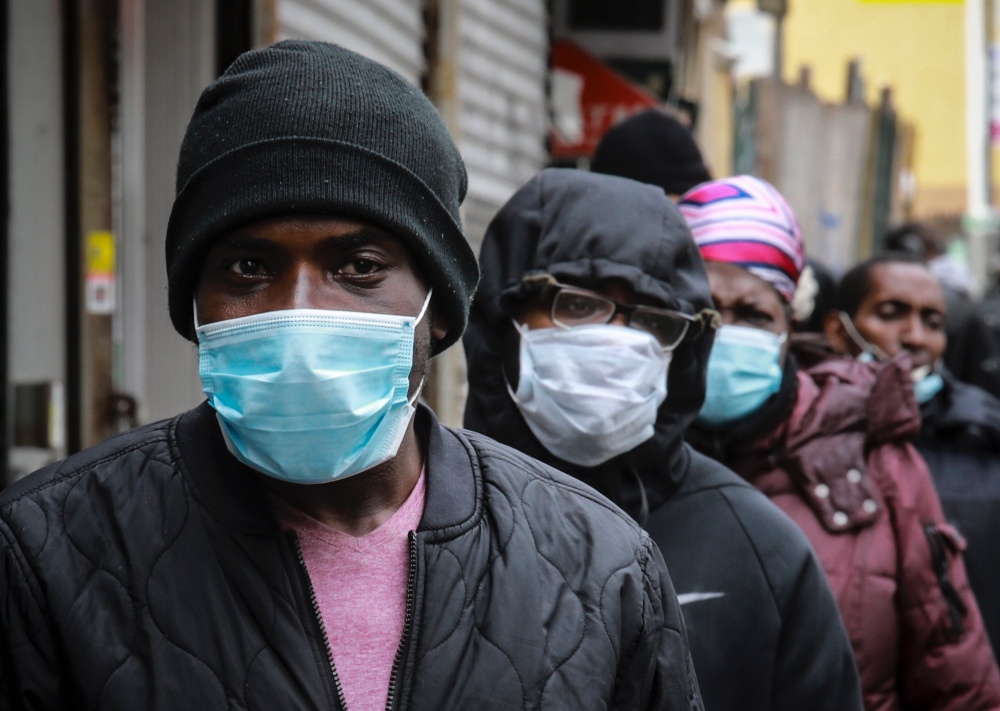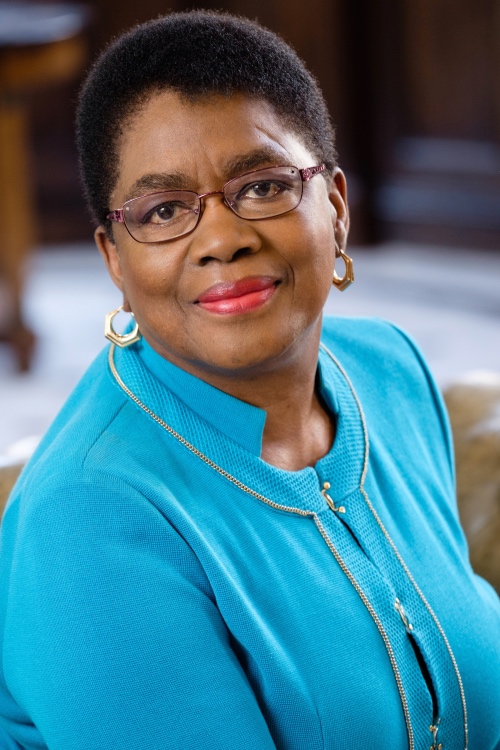
In an article first published on Religion News Service, BARBARA WILLIAMS-SKINNER, president and co-founder of the Skinner Leadership Institute and co-convener of the National African American Clergy Network, says now is a chance for churches to reframe how they reframe approach helping the marginalised…
As a faith leader, I firmly believe that God sometimes allows devastating events to impact our lives to help us redefine or rediscover our priorities and core values. Though the long-term effects of the coronavirus are yet to be determined, what is clear is that the crisis has forced every one of us to change deeply rooted habits and behaviour – from work and play to worship – just to survive.
Also clear is that the virus has intensified the extreme disparities in social and economic outcomes for people of colour and poor whites whom America has ignored for far too long. These disparities are compounding yearslong injustices in vulnerable communities that do not bear witness to our “nation under God.”

People wait for a distribution of masks and food from the Rev Al Sharpton on 18th April in the Harlem neighbourhood of New York after a new state mandate was issued requiring residents to wear face coverings in public due to the coronavirus. “Inner-city residents must follow this mandate to ensure public health and safety,” said Sharpton. The latest Associated Press analysis of available data shows that nearly one-third of those who have died from the coronavirus were African American, even though blacks are only about 14 per cent of the population. PICTURE: AP Photo/Bebeto Matthews.
Crisis is an opportunity for growth and positive change, but to make it so often requires reframing the problem, looking at the issues through a different lens. Just as we’ve been forced to make changes in our lives and institutions in response to COVID-19, we can decide not only to think differently about one another, but to act differently.
A day will come when this pandemic subsides. But will the world return to the way it was before this virus dramatically shifted its course? And more importantly, should it? Loving others is the work that God has called us to do. And if we love others, we will want justice for everyone, regardless of our differences. Social justice is one of the hallmarks of God’s word spoken from the heart of the Biblical prophet Amos to “Let justice roll down like water and righteousness as an ever-flowing stream.”
“Crisis is an opportunity for growth and positive change, but to make it so often requires reframing the problem, looking at the issues through a different lens. Just as we’ve been forced to make changes in our lives and institutions in response to COVID-19, we can decide not only to think differently about one another, but to act differently.”
As infections and deaths continue, a significant amount of the U.S. population will experience long-term effects on their physical health, mental health and finances. Families, friends and colleagues will have the stress and inconvenience of isolation. The millions who have lost their jobs will struggle to survive. With the stress and demands of being sick, caring for the sick, worrying about getting sick or trying to find food and pay bills, the mental health of many has already been negatively affected.
The church has a critical role to play in abating the appalling level of human suffering, especially in communities that are underserved. We should be like the good Samaritan, who, despite not knowing the person in need, gave so much to bring about the healing of his neighbour. Given churches’ proximity to and familiarity with the communities they serve, and the access they have to resources either directly or through networks, they are in a unique position to help where needed. Congregational leaders have a track record of assisting communities during troubled times, often faster than the government.
Your church and congregation can begin by building upon existing relationships and networks, knowing they are sustainable and vetted resources. Expand food pantries and collaborate with businesses, organisations and schools to help with the unexpected cost of expanding food distribution efforts. Ask retired educators in your congregation to provide online tutoring.
Use your buildings. Many churches have open gathering spaces that could provide families experiencing homelessness a place to stay, especially if your state is under a stay home order. Offer pastoral counseling and mental health assistance, sharing links to your church’s worship services. I would strongly encourage pastors, faith leaders and staff to share as much of your worship services, Bible studies and Christian education available online as possible.
Don’t forget those who belong to your church. There’s something about being able to see one another, talk to one another, study with one another and pray with one another in real time that provides a sense of peace and comfort to our brothers and sisters who might be scared and alone in our current circumstances. It is also important to reach out to church members not online with phone calls and letters/cards so that they too feel connected.
These are a few of the many ways churches can help individuals and families cope with loss and recover from the devastation of the virus. As we reopen, additional services can include job training, asking members who own thriving businesses to help provide new jobs and addressing child care needs. Some churches are themselves in difficult situations, with limited resources. But even they can help their neighbors. That is one reason why it is so important to maintain local connections, to ask for help and to be the conduit between those in need and those who can help.

Rev Barbara Williams-Skinner. PICTURE: Doug Sanford
“Hearing the message from a church leader can make a big difference in calling people to action. The Biblical call to ‘love our neighbours as ourselves’ means using our influence to encourage others to make their neighbors all the people they have the ability to help.”
In a broader sense, the church can also leverage its social mission to inform and advocate for just policies, especially regarding the need for a nationwide public health infrastructure and resources, which more than 23 million uninsured Americans lack. We need to focus on the elderly, on low-wage and hourly workers, rural communities and those who are incarcerated, all of whom are particularly vulnerable during this crisis.
As government officials ponder economic aid during this health crisis, faith leaders and their congregations can urge Congress and the President to do so with an eye to ensuring the health and safety of all Americans.
We are made to help one another, to carry one another. There is much suffering, but in the midst of the suffering, there is light. It is in the people going to work every day to stem the tide of death and suffering. It is in the people gathered together online, supporting each other. It is in the families appreciating anew those whom God has blessed to be in their lives. It is in all the people helping their fellow human beings through the crisis in some truly amazing and sacrificial ways. It’s in our commitment during this “down” time, to ensure that the way we think about others and the actions we take, as well as the policies, reflect the loving way God thinks about all of us.
Hearing the message from a church leader can make a big difference in calling people to action. The Biblical call to “love our neighbours as ourselves” means using our influence to encourage others to make their neighbors all the people they have the ability to help.
There is a path out of the COVID-19 crisis. With God’s help, and through working together, we will emerge a more cohesive and resilient nation and world, helping to rebuild both lives and communities for future generations.
Barbara Williams-Skinner is president and co-founder of the Skinner Leadership Institute and co-convener of the National African American Clergy Network.






